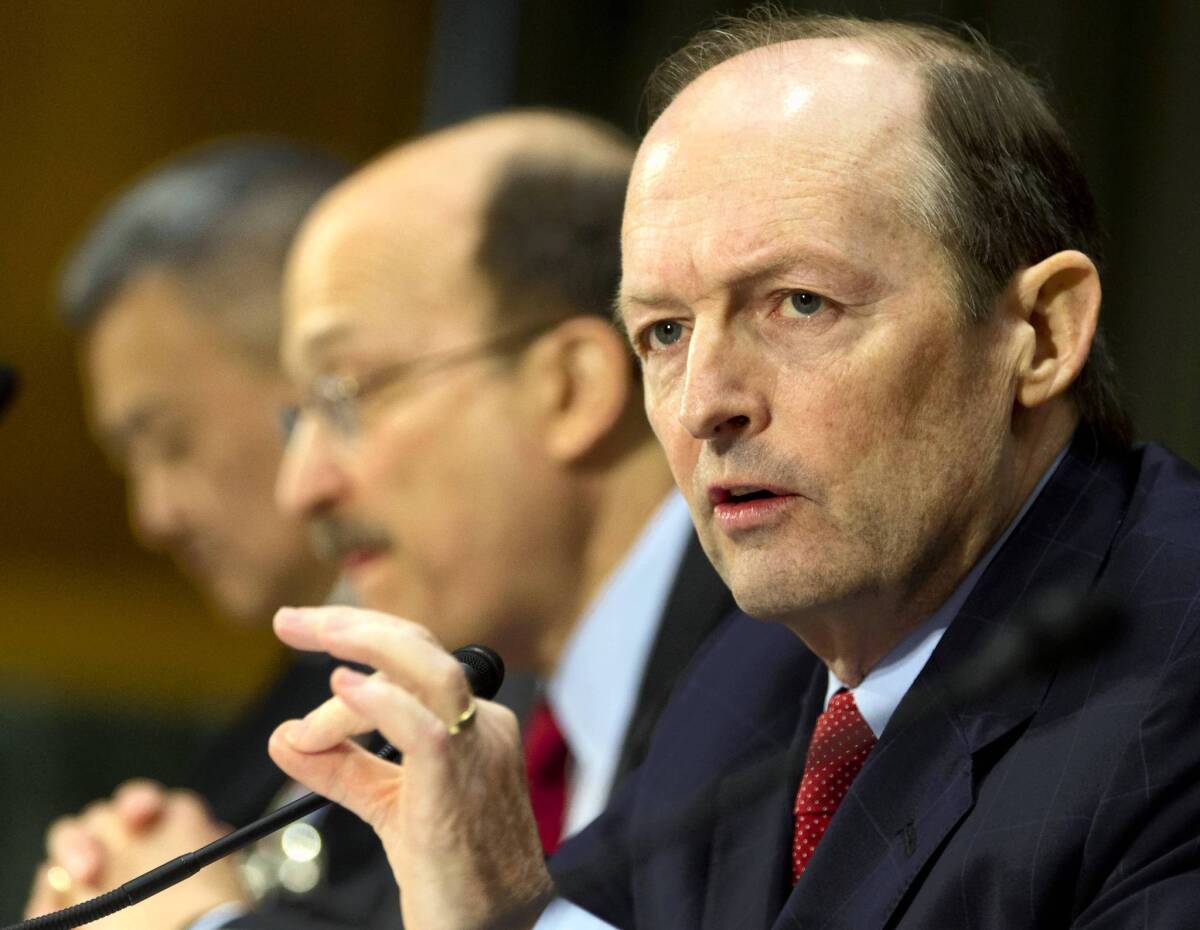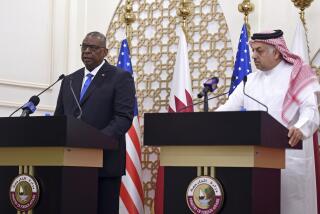Defense official says U.S. has authority to target terrorists anywhere

- Share via
WASHINGTON — A senior Pentagon official told a Senate committee Thursday that the U.S. would be at war with Al Qaeda for 15 to 20 more years and said the military could target terrorists anywhere under a law passed after the Sept. 11 terrorist attacks.
Michael Sheehan, assistant secretary of Defense in charge of special operations, said America’s battle with terrorist groups spanned the globe “from Boston to the FATA,” meaning Pakistan’s tribal areas.
He did not explain why he believes the effort could last another generation. During his State of the Union address in February, President Obama called Al Qaeda “a shadow of its former self.”
Sheehan and the Pentagon’s top lawyers told the Senate Armed Services Committee that the military was authorized to target Al Qaeda operatives in countries where drone strikes don’t now occur, including Mali, Syria and anywhere a host government is “unwilling or unable” to prevent Al Qaeda-linked terrorists from operating on its territory.
That expansive view drew sharp criticism from some senators, who questioned how a 2001 law that authorized use of force against the organizers of that year’s Sept. 11 attacks is now used to authorize drone strikes against militants in Somalia and Yemen who played no role in those events.
“This is the most astounding and the most astoundingly disturbing hearing that I’ve been to since I’ve been here,” said Sen. Angus King (I-Maine), who caucuses with Democrats. “You guys have essentially rewritten the Constitution here today.”
Sen. John McCain (R-Ariz.), a prominent supporter of the Pentagon, called for updating the law to authorize drone strikes and other military operations against a new generation of extremist groups, including those with only tenuous ties to the core Al Qaeda network.
Current law authorizes the president “to use all necessary and appropriate force against those nations, organizations or persons he determines planned, authorized, committed or aided the terrorist attacks that occurred on Sept. 11, 2001, or harbored such organizations or persons, in order to prevent any future acts of international terrorism against the United States by such nations, organizations or persons.”
The Obama administration argues that the law allows it to target “associated forces,” just as the U.S. waged war against allies of the Axis powers in World War II, such as Romania and Bulgaria, even though Congress had not declared war on them.
Sheehan and the other officials warned that changing the 2001 law could restrict the Pentagon’s ability to conduct counter-terrorism operations necessary for national security.
The military has launched drone strikes against militants in Yemen and Somalia, as well as during conflicts in Libya, Iraq and Afghanistan. The CIA, which operates under other laws, has conducted hundreds of drone strikes in Pakistan but is seeking to shift more of the covert operation to the Pentagon.
Jack Goldsmith, a Harvard professor who was a top lawyer in the George W. Bush administration, urged the committee to update the 2001 law and to exercise more oversight of the targeted killings.
“Congress can and should help the executive branch bring the shadow war out of the shadows, even if it makes the conduct of the war harder abroad,” he said.
More to Read
Sign up for Essential California
The most important California stories and recommendations in your inbox every morning.
You may occasionally receive promotional content from the Los Angeles Times.














